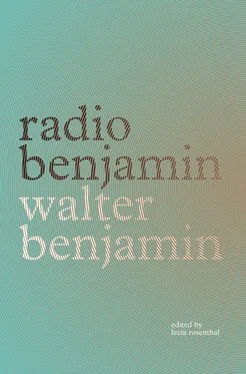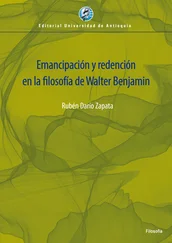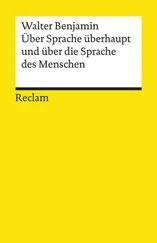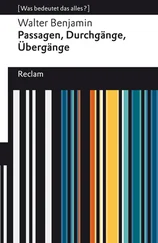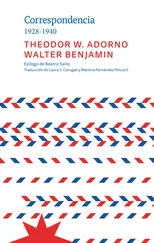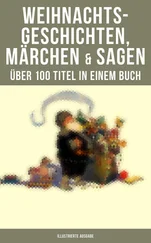LICHTENBERG: Perfectly. It is not the business of an actor to awaken the antiquarian in the audience.
GARRICK: I once read something by an old Spaniard who said that theater is like a map. Valladolid is only a finger’s breadth away from Toledo. One has barely seen a person who is sixteen years old when he appears again at sixty on the stage. That is true theater; one should not hamper the trade with pedantry. ( A gong sounds .) Please excuse me. My scene approaches.
QUIKKO: I trust the gentlemen of the Committee will not think me high-handed for switching it off. But I think our material is complete. I am convinced that we can conclude our debate without further ado. The unhappiness of Professor Lichtenberg can no longer be a mystery to us. You have seen him in the most dazzling society and at that moment in his existence when the world seemed to open up for him. He was a marvelous guest at the English royal court; he had the privilege of speaking to the great actor Garrick about the secrets of his art; he visited England’s great observatories and got to know the wealthy nobility in their castles and seaside resorts; the Queen opened up her private gallery and Lord Calmshome opened up his wine cellar for him. And now he is supposed to go back to Göttingen and his cramped rental apartment, which his publisher has allocated him as payment for his writing. He must exchange his box at the theater for his window seat. He must struggle with the students who are sent to him for room and board by distinguished Englishmen. He, who calculates lunar eclipses and planetary conjunctions, is supposed to simultaneously calculate the pocket money of the young lords and idlers boarding with him. Don’t you see how the misery of this existence — with its intrigues at the university, the gossip of the professors, the resentment and the narrowness — must embitter him and turn him into a misanthrope before his time? His unhappiness? Do you really need to look for it? It is called Göttingen and lies in the kingdom of Hanover.
LABU: I think I speak in the name of all the citizens of the Moon and especially of our research committee for the study of the Earth when I most gratefully thank our colleague and technical director for his interesting remarks. We are dealing here with very illuminating comments, whose special beauty is that they are kept within the frame of our short speeches. However, I would like to oppose the proposal that we break off our research at this point. Because why, even if the Professor is trapped in the narrowness of his small university town, should he not rise high above it on the wings of his dreams?
SOFANTI: In the attempt to tune the Spectrophone in to Göttingen, it turned out that it is now nighttime there. There is absolutely nothing for us to investigate.
LABU: That seems to me a welcome opportunity to prove my conjecture correct and put the Oneiroscope into operation. Give the directive to headquarters.
A series of purring and ringing signals can be heard.
LABU: May I request you, Mr. Quikko, to proceed to the Oneiroscope and tell us what you perceive therein.
QUIKKO: I see Herr Professor Georg Christoph Lichtenberg as he sees himself in a dream. 6He is floating far above the Earth across from a transfigured old man, whose appearance fills him with something greater than mere respect. When he opens his eyes and sees him, an irresistible feeling of worship and trust pervades him, and he is just at the point of prostrating himself in front of him when the old man speaks to him: “You love investigations of nature,” he says. “You shall see something here that might be useful to you.” And now he is passing him a blue-green sphere, here and there dotted with gray, which he holds between his index finger and his thumb. Its diameter is not more than a few centimeters. “Take this mineral,” continues the old man, “examine it and tell me what you have found.” Lichtenberg turns around and sees a beautiful hall with all kinds of tools. I can’t describe them to you, however. Now he takes a look at the sphere and feels it; he shakes it and listens to it; he touches it to his tongue; he tests it against steel, glass, a magnet, and determines its specific weight. But all these tests show him that it is worth little. He remembers that in his childhood he bought the same ball — or one that was not so very different — at a cost of three for a kreutzer at the Frankfurt fair. He finds some clay soil, about as much chalky soil, a lot of silica, and finally some iron and some common salt. He is very exact in his investigation because as he adds up everything that he found, it comes to exactly 100. Now the old man steps in front of him, glances at the paper, and reads it with a gentle, almost imperceptible smile.
(The following must be read so that in Quikko’s voice the two speakers — God and Lichtenberg — can clearly be distinguished from one another.)
“Do you know, mortal, what it was that you were examining?”
“No, immortal, I don’t know.”
“Then know — it was, on a smaller scale, nothing less than the entire Earth.”
“The Earth? — eternal, great God! And the oceans with all their inhabitants, where are they?”
“There they are, in your napkin. You wiped them away.”
“Oh dear, and the skies and all the splendor of solid ground!”
“The skies, they should be caught there in the cup of distilled water. And your splendor of solid ground? How can you ask? That is dust; there’s some on the sleeve of your jacket.”
“But I didn’t find a single trace of silver and gold, which make the world spin!”
“Bad enough. I see that I must help you. Know this: with your fire-steel you have smashed all of Switzerland and Savoy and the most beautiful part of Sicily, and in Africa, an entire stretch of more than a thousand square miles is totally ruined and uprooted. And there, on that glass plate — they just crashed down — the Cordilleras were lying there. And that thing that flew into your eye when you were cutting glass, that was Chimborazo.”
To my regret I must announce that the image is getting blurry. The dream seems to be nearing its end. Morning must be dawning in Göttingen.
A series of purring and ringing signals are heard.
SOFANTI: Finally! The Professor’s science laboratory.
DOROTHEA ( opening a door ): Oh, how stufly it is in here. And the shutters are still closed.
Sound of shutters being pushed open.
Oh, beautiful air, a beautiful morning! But what dust. He has made himself cozy here while I’ve been home for eight days. And even the dust cloth is nowhere to be found.
Brief pause.
Well, now, look lively!
She sings:
Rise up, dear little children!
The morning star with its bright light
Lets itself be seen freely like a hero
And shines over the whole world.
Be welcome, dear day!
Night does not want to stay.
Shine into our hearts
With your heavenly glow. 7
The tinkle of shattering glass can be heard.
For heaven’s sake! ( Again, even more aghast. ) For heaven’s sake!
LICHTENBERG ( can be heard opening the door ): What happened?
Impossible! The electrification machine!
DOROTHEA is heard crying.
LICHTENBERG: Yes, that is my just punishment for sleeping late. What was it that my esteemed teacher Tobias Mayer always said: life consists of the morning hours. And that is why I have made it a rule for myself that the rising sun shall never find me lying in bed as long as I am healthy. 8
DOROTHEA is heard crying.
LICHTENBERG: Well, then we will just have to write to Braunschweig and order a new cylinder for two Louis d’or, and we’ll just have to see how we can manage without artificial lightning for the next weeks. — Well, what is there to cry about? You can’t be crying about the damage? — I know, you’re crying about your toy box. But what more could happen to it now; I really wish you had completely different toys. You should have been with me that time in London to see Mr. Cox’s museum. 9You wouldn’t have been able to keep from moving among all the magical apparatuses on your tiptoes. There you would have found snakes climbing up trees; butterflies moving their wings, studded with diamonds; tulips opening and closing; waterfalls flowing from sinuous glass tubes that quickly spun on their axes; golden elephants with golden palaces on their backs; swans swimming away across mirrors; crocodiles eating golden spheres.
Читать дальше
